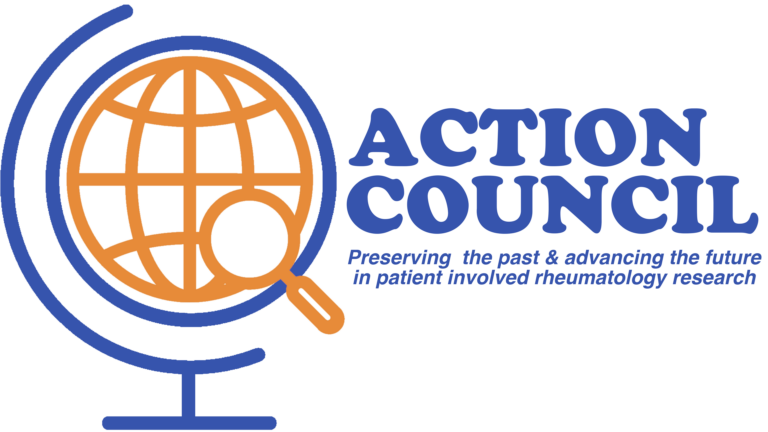Recommendations Pathway
Recommendations

Rheumatology guidance begins
- 2005: Cochrane Musculoskeletal (CM)Cochrane Musculoskeletal (CM) is made up of health care professionals, researchers and consumer representatives that belong to Cochrane, an international, non-profit organization that aims to help people make well-informed decisions about health care by preparing, maintaining and promoting reviews on the effects of health care treatments. They produce reliable, up-to-date reviews of interventions for the prevention, treatment or rehabilitation of musculoskeletal disorders in the form of systematic reviews. CM is also dedicated to making our systematic reviews available to those interested in treatments for musculoskeletal diseases (dissemination). In 1993, they formed a Consumer Group (CMSG), enlisting patient systematic reviewers to join health care professionals and researchers belonging to Cochrane. Canada musculoskeletal.cochrane.org develops guidance for systemic review authors and for building partnerships in research.Consumer‐driven health care: Building partnerships in research, 2005. Shea B, Santesso N, Qualman A, Heiberg T, Leong A, Judd M, et al. Consumer-driven health care: building partnerships in research. Health Expectations 2005;8(4):352-9.
musculoskeletal.cochrane.org
Download PDF
- 2006: Cochrane Musculoskeletal Consumer Group (CMSG)The CMSG formed in 1993, enlisting patient systematic reviewers to join health care professionals and researchers belonging to Cochrane. “The feedback provides a layperson’s perspective to complement the feedback provided by our clinical experts.”musculoskeletal.cochrane.org develops initial recommendations to aid knowledge translation and exchange between clinicians and consumersSantesso N, Maxwell L, Tugwell PS, Wells GA, O’connor AM, Judd M, Buchbinder R. Knowledge transfer to clinicians and consumers by the Cochrane Musculoskeletal Group. J Rheumatol. 2006 Nov;33(11):2312-8. PMID: 17086612.. These were updated in 2014.
- 2008: Assessment of SpondyloArthritis International SocietyAssessment of SpondyloArthritis International Society is an international group of experts in the field of spondyloarthritis.
asas-group.org/European Alliance of Associations for Rheumatology European League Against Rheumatism (EULAR) aims to reduce the burden of rheumatic diseases on the individual and society and to improve the treatment, prevention, and rehabilitation of musculoskeletal diseases.
eular.org (ASAS/EULAR) collaborated with patients to translate recommendations for the management of ankylosing spondylitis for the first time into a language easily understood by patients.
CoPI: Advisory panels, consumer reviewers
Tools: Guidance documents – patient-researcher engagement; Recommendations – dissemination
Context: Systemic literature reviews, lay summaries, guideline development, dissemination (knowledge translation)
Additional frameworks, recommendations, and reviews
- 2015: Outcome Measures in Rheumatology (OMERACT)OMERACT is a global community for the development of Core Outcome Sets in the field of rheumatology. Patients participate as research partners in all phases of the research and are equal members in any OMERACT working group.https://omeract.org publishes recommendations for collaborative research Cheung PP, et al. Recommendations for the Involvement of Patient Research Partners (PRP) in OMERACT Working Groups. A Report from the OMERACT 2014 Working Group on PRP. The Journal of rheumatology 2016;43(1):187-932015
https://omeractprpnetwork.org. - 2015: With funding from European League Against Rheumatism (EULAR)EULAR is the organization that represents people with arthritis/rheumatism, health professionals (HPR), and scientific societies of rheumatology of all the European nations. The aims of EULAR are to reduce the burden of rheumatic diseases on the individual and society and to improve the treatment, prevention, and rehabilitation of musculoskeletal diseases. To this end, EULAR fosters excellence in education and research in the field of rheumatology. It promotes the translation of research advances into daily care and fights for the recognition of the needs of people with musculoskeletal diseases by the governing bodies in Europe. As such, they have always had their own educational program at the annual EULAR Congress meeting, but in the earlier years, the symposia they organized was mostly independent of the other congress sessions. eular.org, a mixed task force of researchers and patient research partners from over ten European countries develops a new patient derived Health Related Quality of Life instrumentde Wit MPT, Kvien TK, Gossec L. Patient participation as an integral part of patient-reported outcomes development ensures the representation of the patient voice: a case study from the field of rheumatology. RMD Open 2015;1:e000129. doi:10.1136/rmdopen-2015-000129
www.eular.org for rheumatoid arthritis (RAID) and psoriatic arthritis (PsAID) .
. - 2016: European Patients’ Academy (EUPATI)EUPATI is a pan-European project implemented as a public-private partnership by a collaborative multi-stakeholder consortium from the pharmaceutical industry, academia, not-for-profit, and patient organizations. The Academy was started, developed and implemented as a flagship project of the Innovative Medicines Initiative and continues to be led by the European Patients’ Forum (EPF). EUPATI has already trained 96 patient experts on medicines development, clinical trials, medicines regulations, health technology assessment. Additionally, EUPATI offers and maintains the Toolbox on Medicine Development, and coordinates a network of national platforms for patient advocates.https://eupati.eu offers and maintains the Toolbox on Medicine Research & Development and Patient EngagementLearn more about this tool at https://toolbox.eupati.eu/.
- EUPATI coordinates the network of national platforms for patient advocates National Platforms bring patient, academic, and industry partners together to discuss patient education and patient involvement in medicines research and development (R&D). Working together, National Platforms raise awareness about the important role of patients, and members identify challenges and opportunities for joint action.
https://www.eupati.eu/.
CoPI: Patient Research Partner (PRP)
Tools: Recommendations – patient researcher engagement; Instruments – patient-researcher engagement
Context: Patient-reported outcomes (PROs), Research & Development
Compensating Patient Partners – Guidance Emerges
Patients, care partners, and patient groups involved in patient engagement activities should be compensated as lived experience experts. Over the years, as more patient voices in research have emerged, various levels of expertise have also evolved. What should you pay these engagement partners for participation in your project?
- 2019: National Health CouncilThe National Health Council provides a united voice for the 160 million people living with chronic diseases and disabilities and their family caregivers. nationalhealthcouncil.org (United States) publishes a Fair-Market Value (FMV) Calculator to determine compensation based on level of expertise. View Patient Engagement Activities Framework document guide
 .
. - 2018: Canadian Arthritis Patient Alliance (CAPA)Canadian Arthritis Patient Alliance (CAPA) works to improve access to medications, health care professionals, and services, Increase patient involvement in arthritis research and policy agendas, and understand and influence research and treatments. arthritispatient.ca and the Rare Disease FoundationRare Disease Foundation is led by rare disease patients, caregivers, researchers, and practitioners who share the same sense of urgency and values about access to resources and research for rare disease patients and their families. rarediseasefoundation.org (Canada) defining core principles behind compensation, outlining how to put those principles into practice in a valid, credible manner that honors and values the contributions of patients and families whether in quality improvement or health research
 .
.
- 2020: Canadian Arthritis Patient Alliance (CAPA) and the Rare Disease Foundation (Canada) publish additional practical recommendations related to compensation
 for Patient Research Partners (PRPs).
for Patient Research Partners (PRPs).
- 2020: Canadian Arthritis Patient Alliance (CAPA) and the Rare Disease Foundation (Canada) publish additional practical recommendations related to compensation
- Some groups, like Outcome Measures in Rheumatology (OMERACT)Outcome Measures in Rheumatology (OMERACT), is a global community for the development of Core Outcome Sets in the field of rheumatology. Patients participate as research partners in all phases of the research and are equal members in any OMERACT working group. omeract.org, omeractprpnetwork.org, are all volunteer organizations. In these cases, when other stakeholders are also donating their time, it is acceptable to expect patient partners to donate their time, too.
CoPI: Patient Research Partners
Tools: Recommendations – compensation
Context: Compensation



